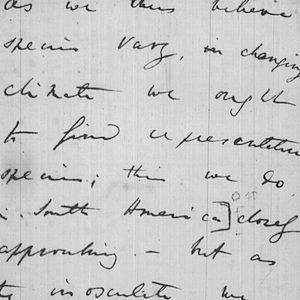-
-
Step-by-step course guide
-
What you will learn in this course
-
About the course: David Kinney & Simon DeDeo
-
Introducing the course Teaching Assistant
-
Join the discussion
-
-
-
Introduction to Humanities Analytics
-
-
-
-
Analyzing "Excellence" in the Humanities
-
-
-
-
-
-
Case Study: Capitalism & Democracy
-
Chapter 5 part 1 Overview
-
The Marriage of Capitalism & Democracy part 1
-
Test Your Knowledge part 1
-
Test Your Knowledge part 1: Explanations
-
Chapter 5 part 2 Overview
-
The Marriage of Capitalism & Democracy part 2
-
Test Your Knowledge part 2
-
Test Your Knowledge part 2: Explanations
-
Assignment: Case Study: Capitalism & Democracy
-
-
-
-
-
Measurement & Operationalization
-
-
-
A Philosophical Approach to Probability
-
-
-
Guest Lecture: Marco Buongiorno Nardelli
-
-
-
-
-
Guest Lecture: Nan Z. Da
-
-
-
Wrap-Up
-
What's Next
-
5.1 Questions » Chapter 3 Overview
What you will learn in this chapter
How to ask good research questions in Humanities Analytics. This is a process that often begins with a broad question and progresses to a much more narrowly defined one. However, this more narrowly defined question may ultimately become relevant to a second question that this even broader than that which was initially considered. You will learn how good research questions are interesting regardless of the answer that the researcher obtains, and how they draw a reader's attention to something about a domain of inquiry that they had not previously considered. You will also learn how good questions chiefly concern ideas, rather than evidence. Finally, you will learn the common features of a bad research question in humanities analytics, and how to avoid them.
Key terms to keep in mind
Research Question A succinct statement of a question that you intend to try to answer. Good research questions are jargon-free and easy for people in other disciplines to understand. They also help in directing different members of a collaboration in choices of methods, archives, and approaches.
Sociology of Knowledge The study of the social processes involved in “knowledge-seeking” activity. Sociology of knowledge might include, for example, the study of how scientists share results with others, or how they choose research questions.
Empowering and Advancing a Field of Inquiry Good investigations are empowering. They not only answer questions, but they do so in a way that enables others to do new and interesting work. In some cases, an investigation can empower others by presenting a new archive or analysis method; in other cases, it might reveal new puzzles in the field, or show how a classic puzzle can be reframed, enabling new questions.
Computerizing a Field of Inquiry Computerization is a double-edged sword. Our course is about the ways in which STEM concepts can be used to help phrase and answer new questions in the humanities, or to provide a complementary perspective on classic questions. Sometimes, however, people get stuck: rather than asking new questions, or approaching old questions from new angles, they use a new method to get exactly the same answer that people in the humanities have already found. The example from our lecture is the use of computer analysis to “prove” that King Lear is a tragedy.
